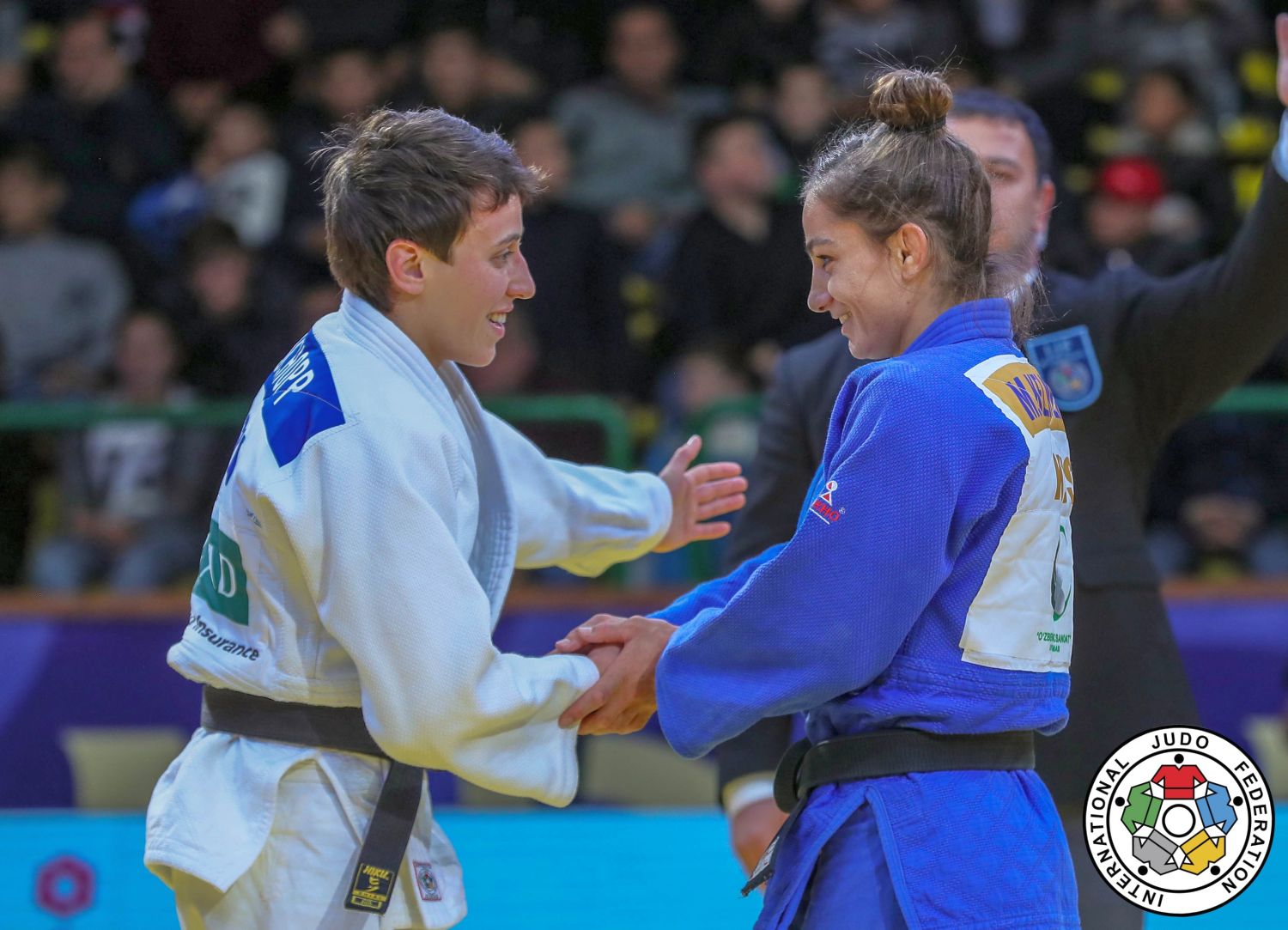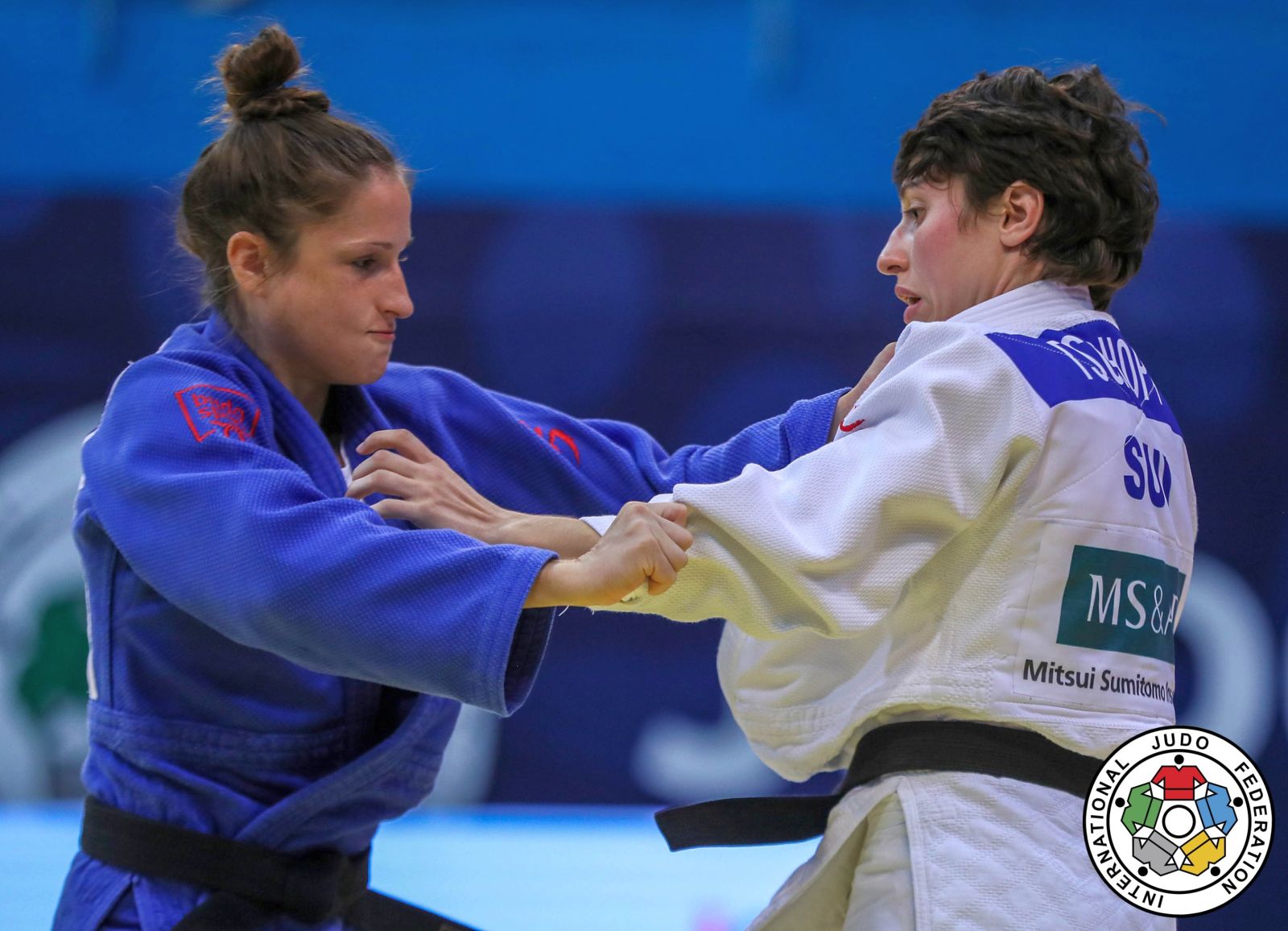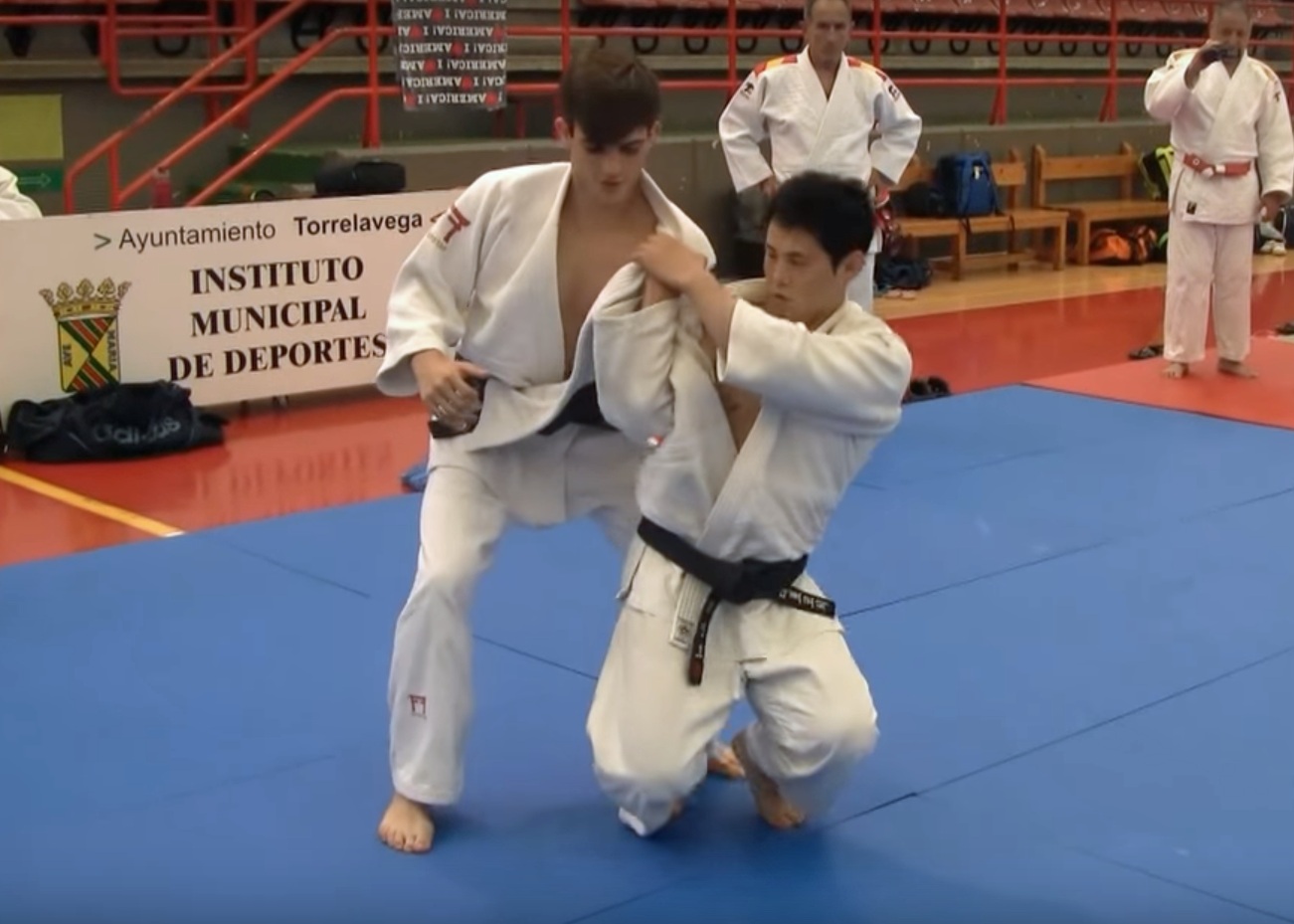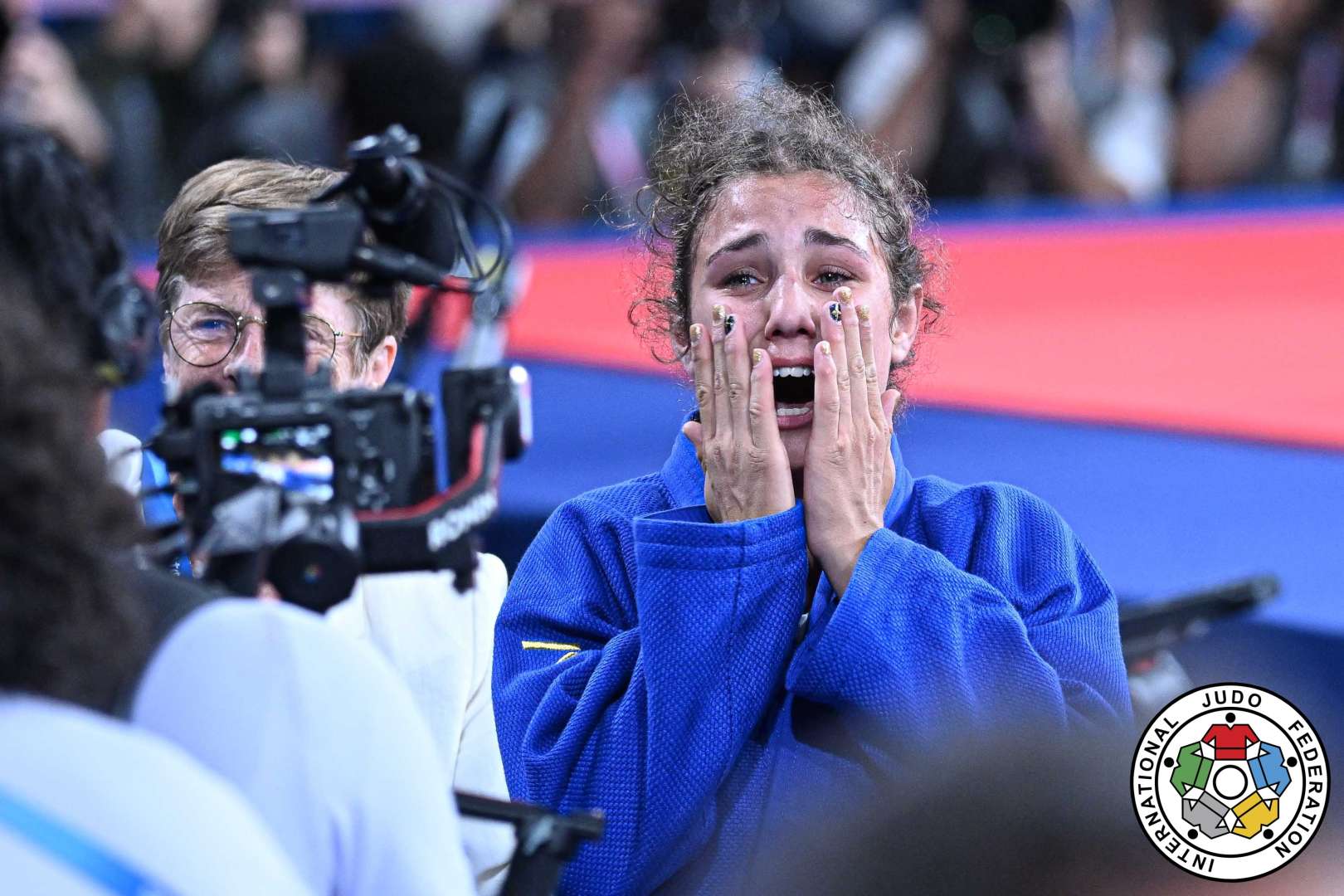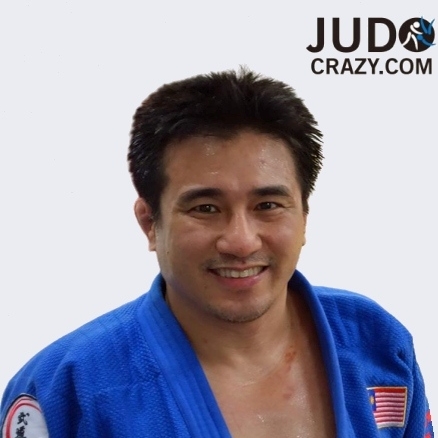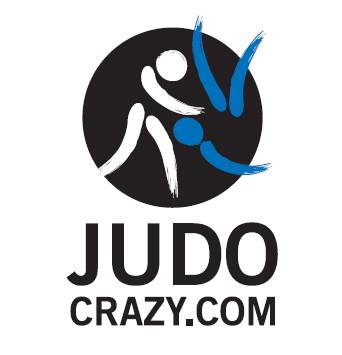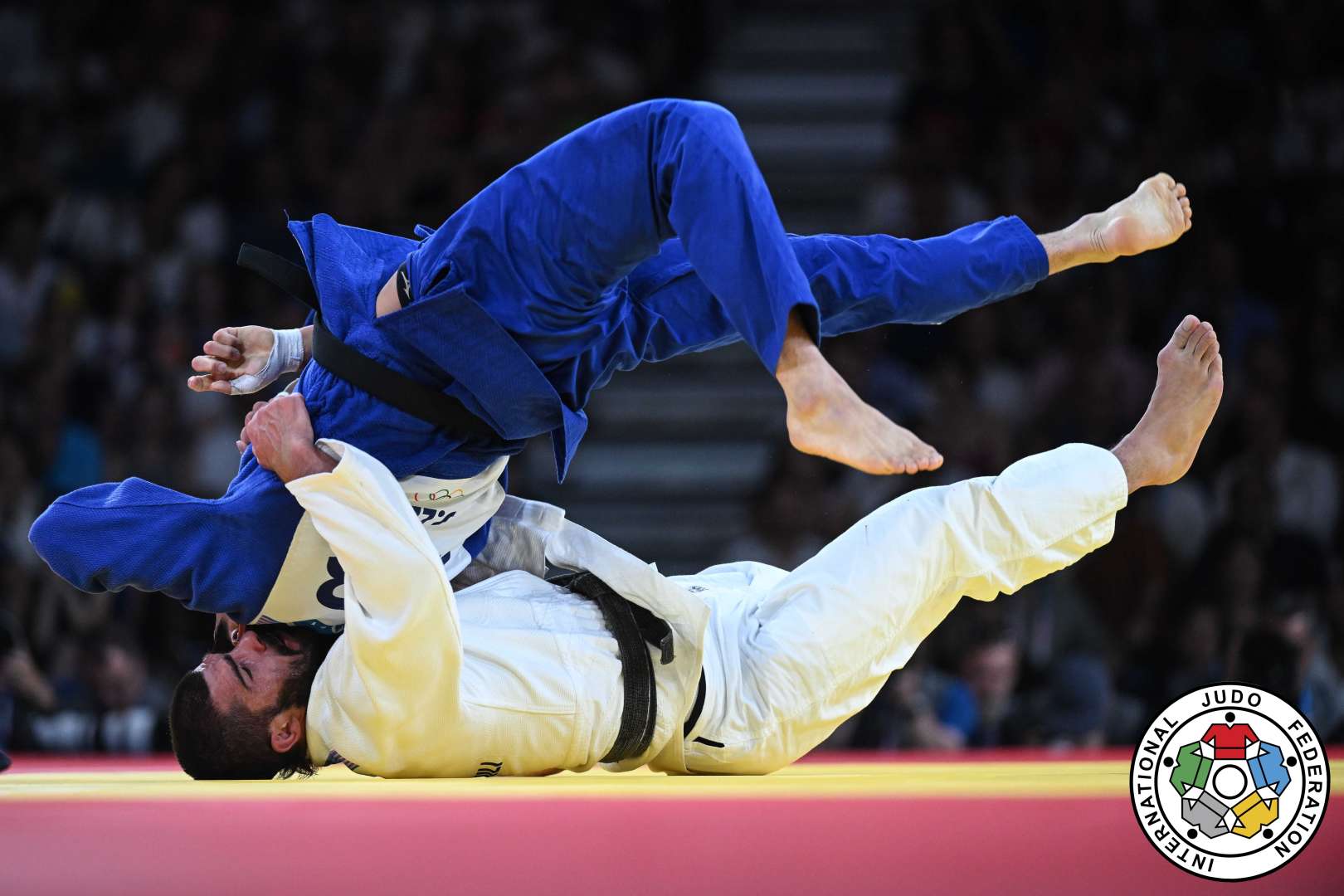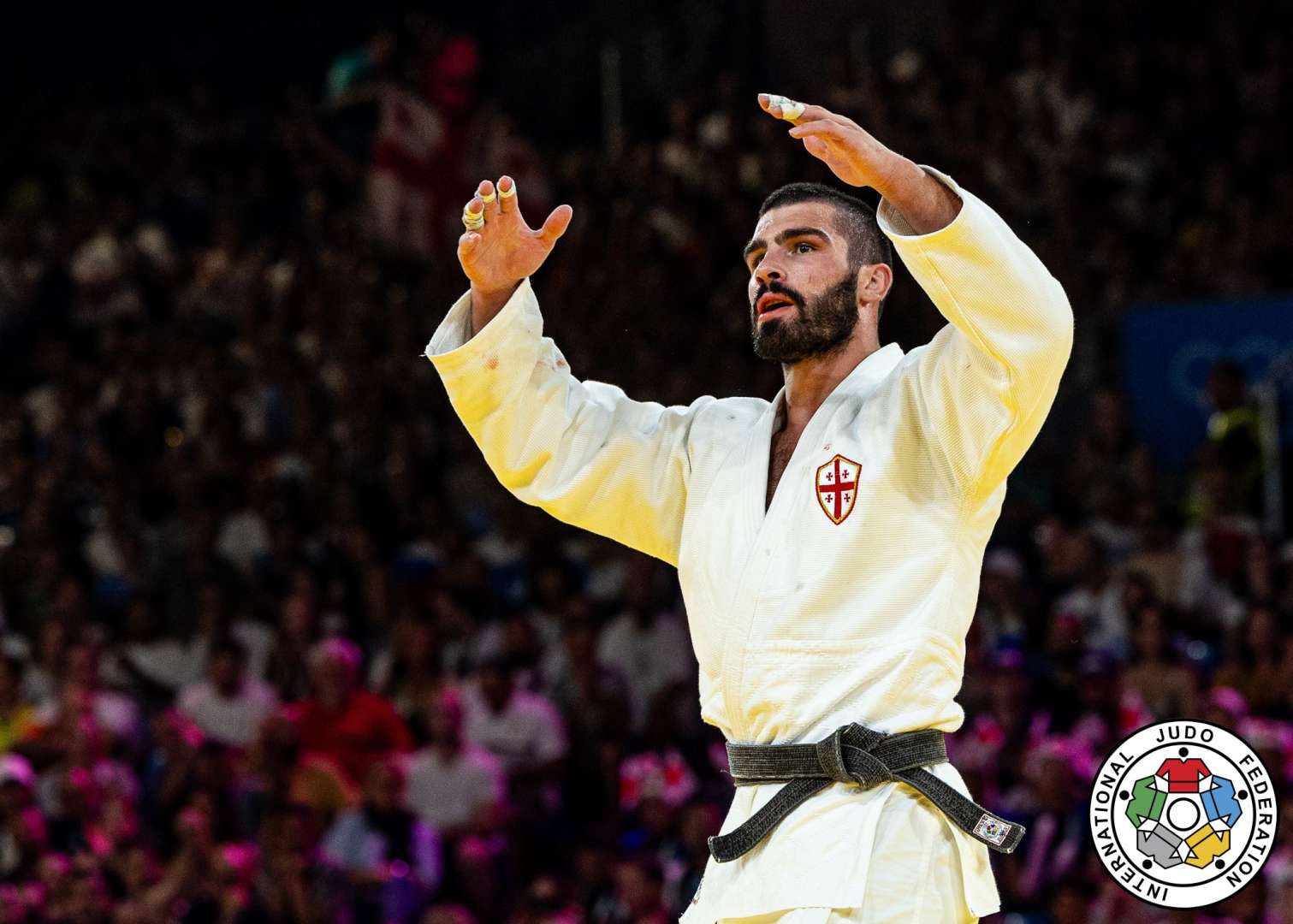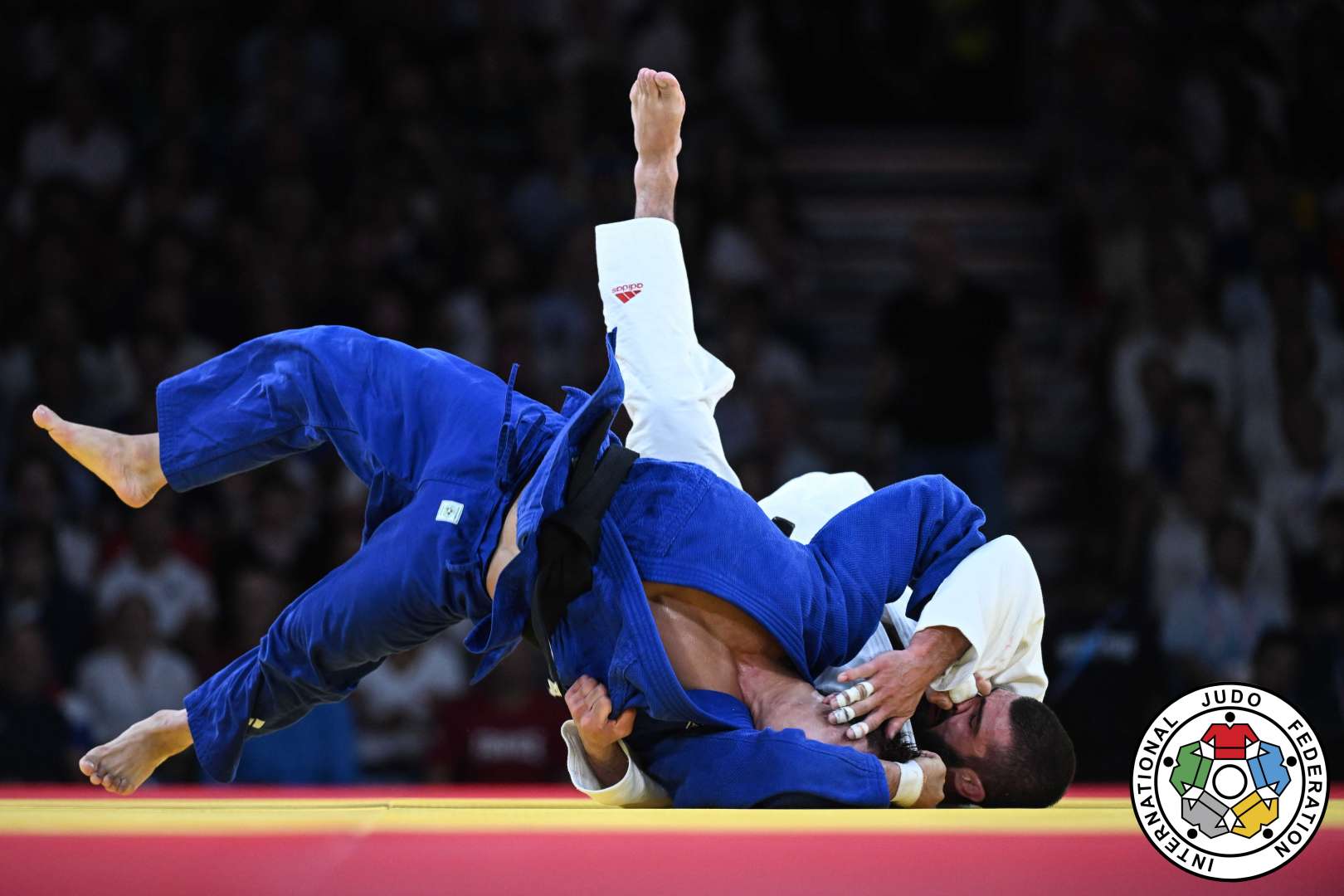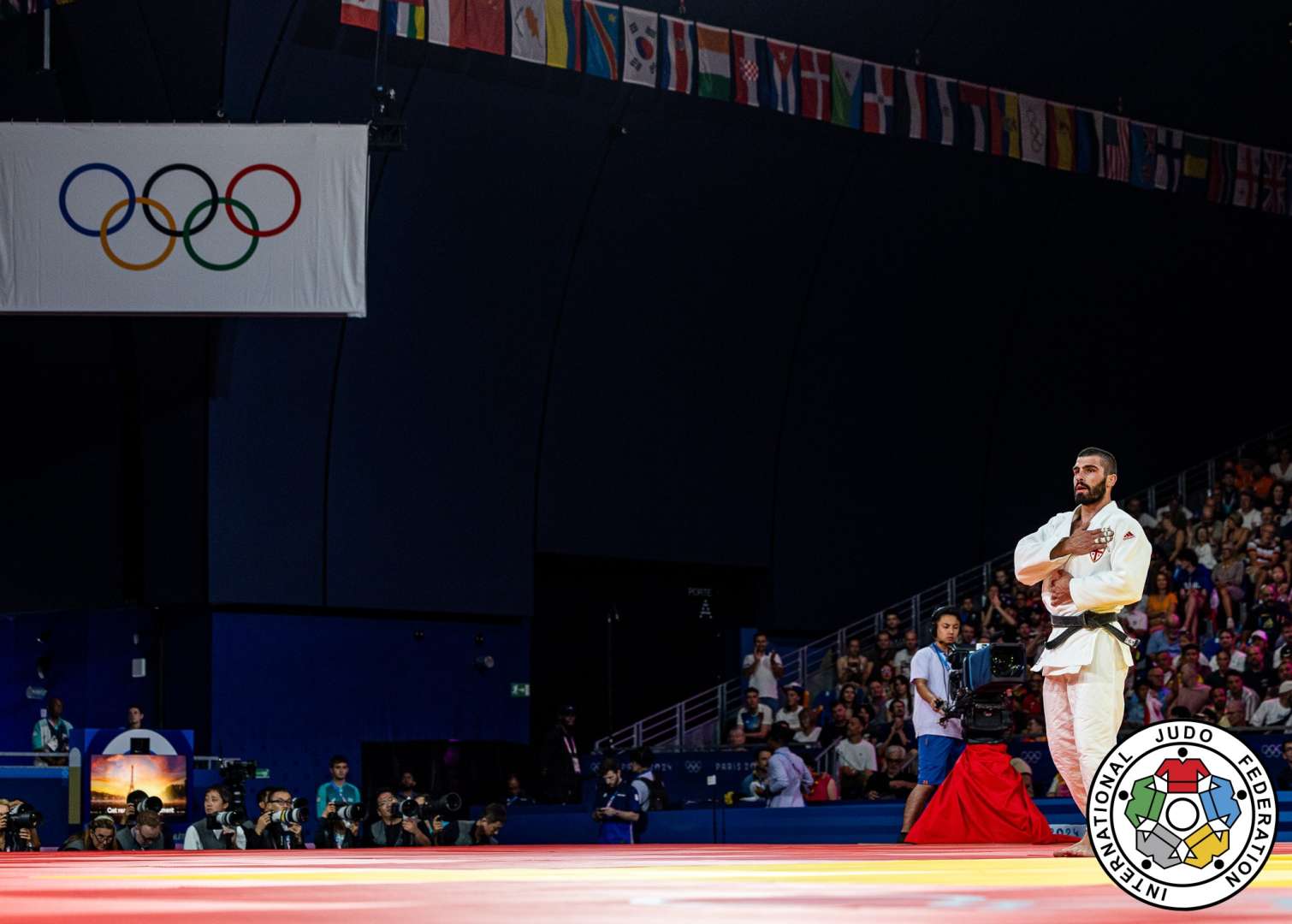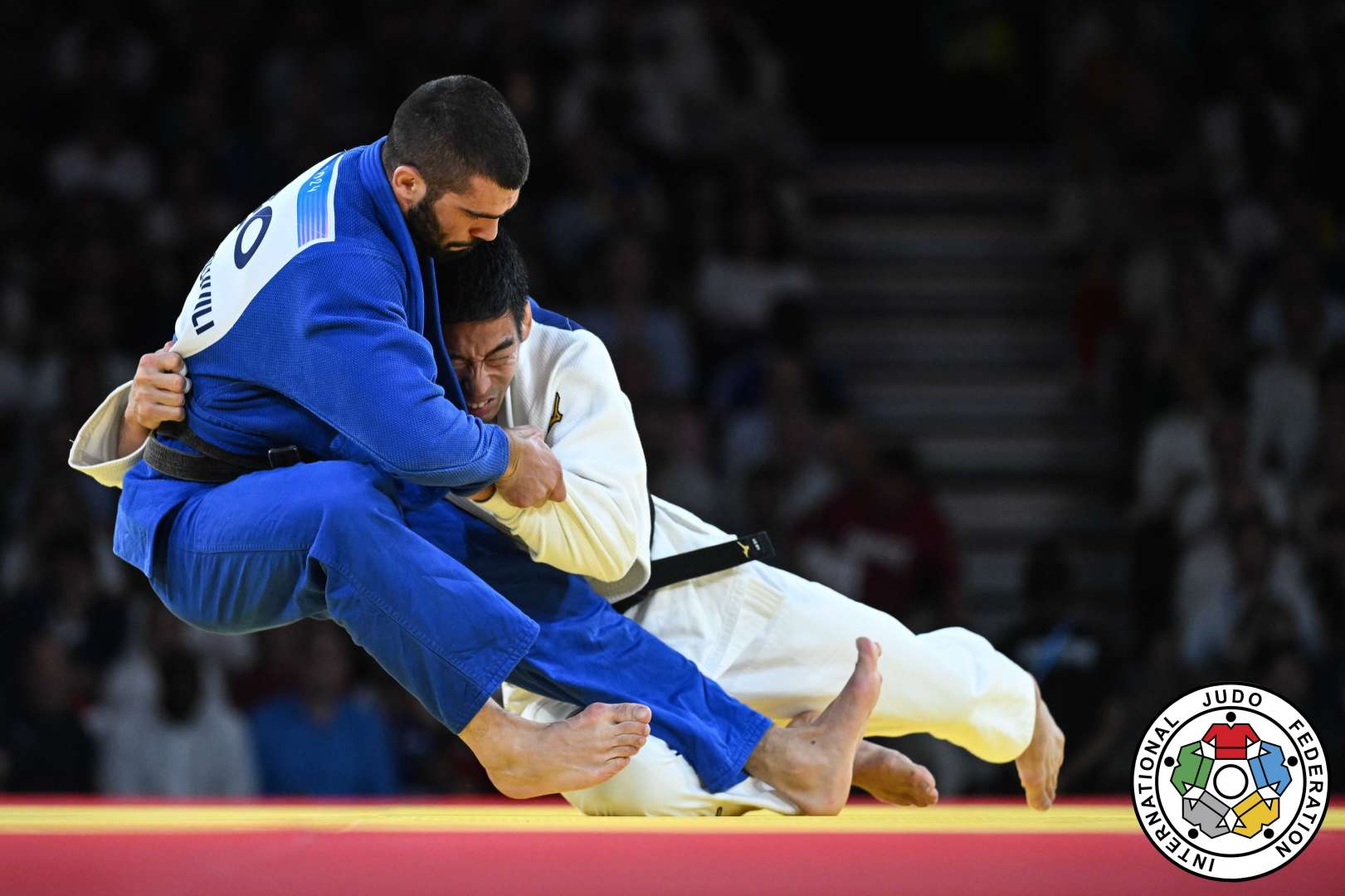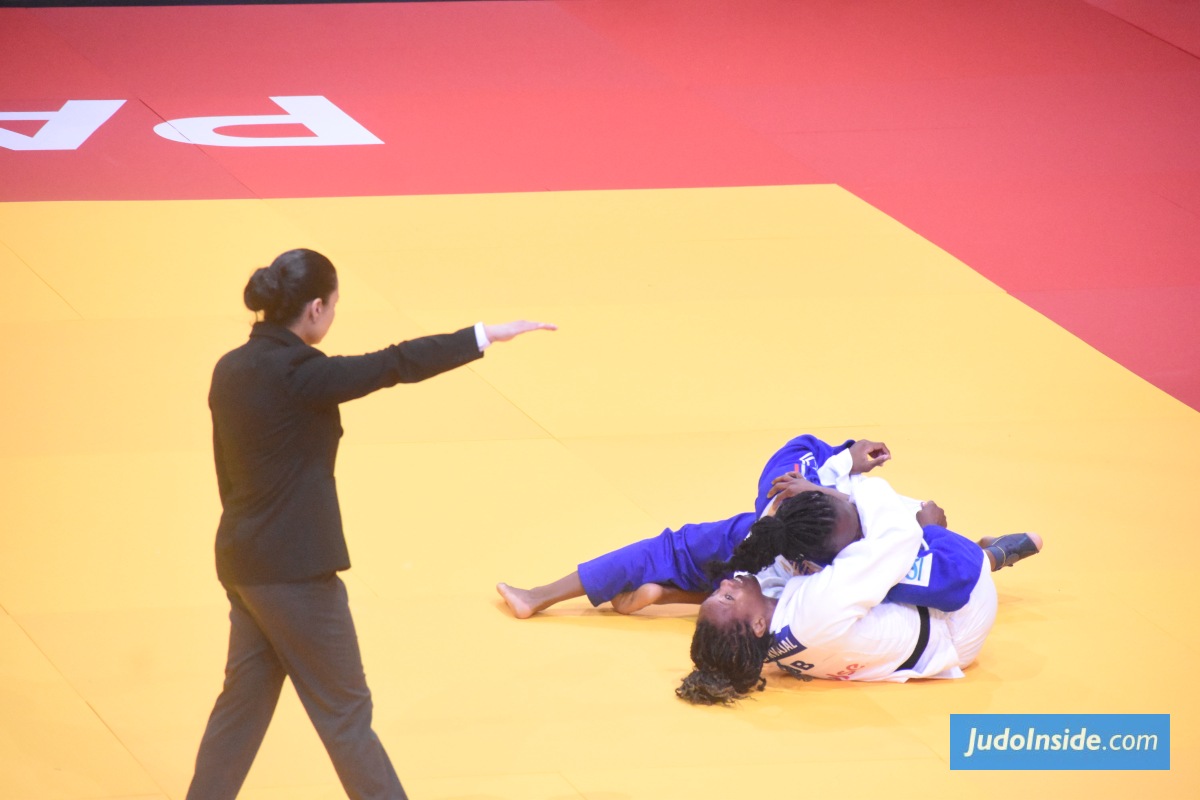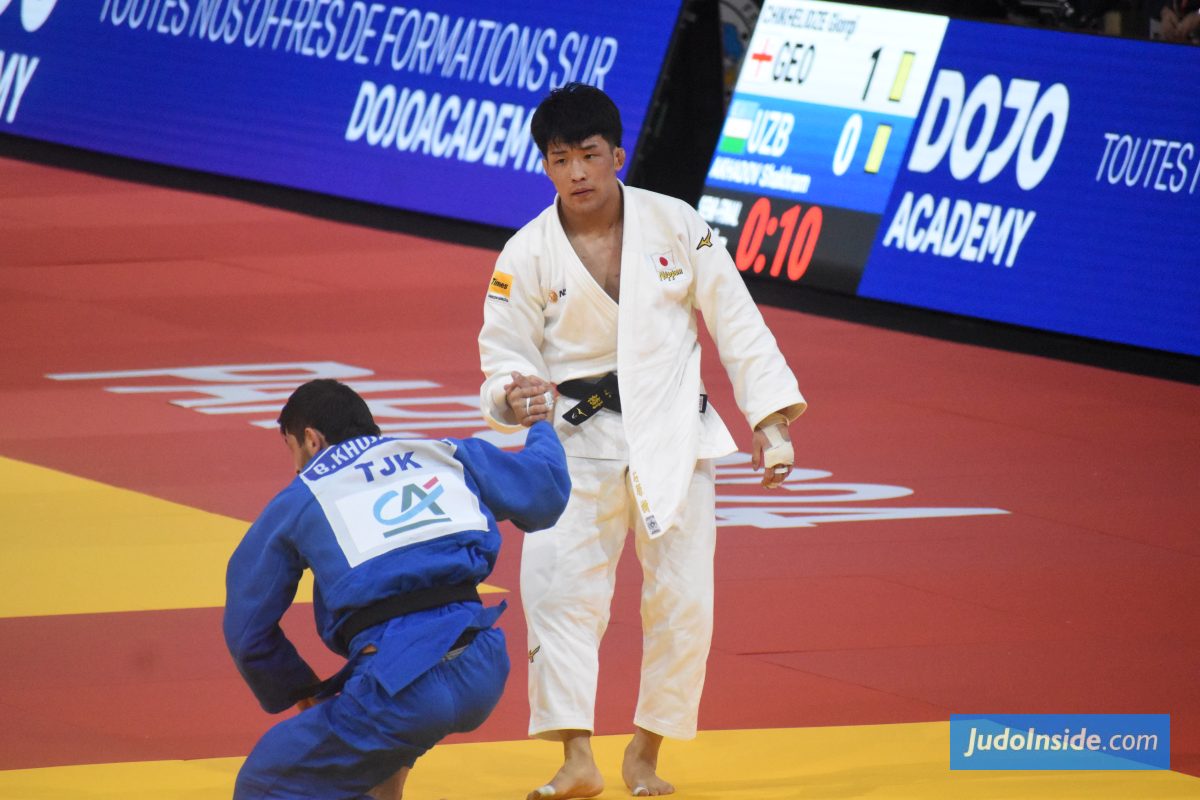Judo in the time of Covid-19: Evelyne Tschopp

 22 May 2020 16:30
22 May 2020 16:30
 JudoCrazy by Oon Yeoh
JudoCrazy by Oon Yeoh
 Paco Lozano / Judo y Otros
Paco Lozano / Judo y Otros
It's tough being an international player if you come from a small judo nation like Switzerland, where judo is not popular, but somehow Evelyne Tschopp has managed to succeed. This is her story, drawn up by JudoCrazy's Oon Yeoh.
JIC: How’s the Covid-19 situation in your country right now?
ET: On March 16, they closed every non-essential store, recreational facility and school in Switzerland. Everything was shut down except grocery stores and pharmacies. Now, some sport activities have opened again. It’s only for those where social distancing can be observed. I don’t know when judo will be possible but contact sports will be the last allowed.
JIC: You’re a medical student. Are you a front-liner at the hospital?
ET: At the beginning of March I had to work in the hospital but not due to Covid-19. I was based at the Ear, Nose and Throat (ENT) section. I was not often in contact with patients who were suspected of having Covid-19.
JIC: Have you been able to make the most out of this lock-down situation?
ET: I broke my leg almost a year ago. Since we are not able to do any judo right now, I have decided to have the screws removed from my ankle. This will allow me to do judo with more comfort once judo reopens in the future.
JIC: How have you been passing your time during the lock-down?
ET: Normally judo takes up a lot of my time. Not just the training itself but the commute as well. I have to drive about one and a half hours to get to training and one and a half hours back. So, you can imagine how much spare time I have now that there’s no judo. I’ve been concentrating on mental training. I’m also reading a lot of medical stuff. I’ve started learning a bit of Japanese. And I cook and bake a little.
JIC: How do you view the Olympics postponement?
ET: On the one hand, it means I have an extra year to develop my judo. On the other hand, it’s also one more year of cutting weight and there’s also the stress of qualification. It also affects my internship at the hospital. it doesn’t make sense to stress over something I don’t have control over.
JIC: How popular is judo in Switzerland?
ET: Children’s judo is quite common but not that many will continue into adulthood. Judo isn’t that popular. You don’t see it regularly on TV or anything like that. Sometimes you may see an article or two in the newspapers. But it’s gradually improving.
JIC: Are there a lot of judo clubs?
ET: In Switzerland there are a lot of really small judo clubs all over the country, and we have regional training centers for cadets and juniors, as well as two national centers for senior athletes. One is in the German-speaking part, and one in the French-speaking part.
JIC: As a professional judoka are you paid by the government?
ET: Neither the judo federation nor the government pays us a salary. Top athletes get their tournaments and training camps paid for by the federation. But for our income, we have to work or get some sponsors.
JIC: Don’t players get some money if they get good results?
ET: The federation pays prize money for medals at the European and World Championships. Other than that, nothing. Even then, it’s like $500 per month. You need at least $3300 per month to get by, so this is not enough for you to live on.
JIC: Any other sources of support?
ET: Schweizer Sporthilfe — that’s the sports aid in our country — also helps out. But I would say even if you get a lot of sponsors, you’ll never get rich on judo. It’s more like you will not have to be in debt by the end of the year. Even when we train at the national center we have to pay for food and lodging ourselves.
JIC: I gather it’s pretty hard to be a professional judoka in Switzerland?
ET: In Switzerland, you cannot make a living just doing judo. After your competition career is over you have to work. So, I wanted to do something which interests me. And that’s medicine.
JIC: Can you tell us a bit about your judo club?
ET: My judo club is a small one in the French-speaking part of Switzerland, in the city of Neuchatel. It’s called Judo Club Cortaillod-Neuchatel. Our club has competed three times already in the European Club Championships. In the 2019 Swiss Team Championships we got second place.
JIC: Are top judokas concentrated in one or just a few clubs?
ET: There are some clubs which are stronger than others but if you look at the composition of the national team, you’ll see that the players are quite spread out.
JIC: How does a young Swiss fighter rise up the ranks to become a top fighter?
ET: We have a qualification system in Switzerland where you have to win medals at a certain level. When you reach this, you may be sent to a bigger one such as a European Cup, European Open, Grand Prix and so on. But the level in Switzerland is not so high, so the gap between the national and the international level is quite big. Not so many can close this gap at the moment.
JIC: How did you manage to do it?
ET: I don’t know how I managed it. I was never one of the top juniors in Switzerland. I was good enough to get selected for the Junior European Cups but I never fought a European Championship or World Championship as a junior. Perhaps it was just my will to succeed. I was always determined to achieve my goals, even when my coach wasn’t. Also, I should say that judo is quite small in Switzerland. If I had been born in a country like Russia or France, I might have never even gotten the chance.
JIC: Can you describe to us how you work on your judo development?
ET: I like to work on technical things, to learn how to properly place your hands, your feet, etc. My attitude is, the better you are technically, the less power you’ll need to do your judo. I always try a lot of things in randoris, to figure out how different techniques works. I’m not afraid of getting thrown in training.
JIC: Medicine is a tough and demanding subject to tackle. How do you manage to train full-time and study medicine as well?
ET: Time management is crucial and having a university that is accommodating is helpful too. I did my Bachelor’s degree in Fribourg, a small city in the French-speaking part. The university helped me a lot. They allowed me to stretch one year of studies over two years, and I was able to get special arrangements when my exams clashed with my competitions. For my Master’s it’s a bit more complicated because we have to start working at hospitals. That’s why I wasn’t able to do the training camp after the Dusseldorf Grand Slam.
JIC: Doesn’t the stress of medical studies affect your judo?
ET: It does but in a good way, ironically. I need something else to think about than just judo, otherwise I’d go crazy. This may sound weird but sometimes, I feel the more stressed I feel about my exams, the better I fight in competitions. You see, I’m passionate about both judo and medicine. This is due to the influence of my mother who is also a physician.
JIC: Are you able to study while training?
ET: It’s possible. Sometimes, I have to study during training camps. At the last Mittersill international training camp, I had to study because I had exams coming up. There, I had to squeeze in study time whenever I could, including the 10-minute bus ride to and from the training camp. It’s hard but strangely, I also like these times.
JIC: What do you like besides judo and medicine?
ET: Sometimes I like to go for a little ride with my motorcycle. In general, I love animals. I have two cats whom I adore. And from time to time, I like to watch a movie or go to play football with my friends.
JIC: How important is the Olympics to you?
ET: It is very important to me. It’s the dream of every athlete, I would say. I train everyday to achieve my goal of getting an Olympic medal. But at the moment there are about five or six international players who are clearly still better than I am. So, I have to work hard to close that gap.
JIC: One player you’ve fought a lot with is Kelmendi of Kosovo. You’ve fought her eight times at international competitions but have yet to beat her. Do you think you’ll be able to beat her the next time you meet?
ET: Fun fact: Kelmendi is the same age as me. When we were children, she often came to Switzerland to train and I fought her many times in domestic competitions. So, our rivalry actually goes back a lot longer than people realize. If I remember correctly, I did beat her once… ha… ha… She’s a really tough fighter who is physically very strong and has powerful hip throws but I have thrown her two or three times in competition. I’m confident I can beat her, maybe not the very next time we meet but in the near future.
JIC: How well do you deal with defeat in competition?
ET: I think I deal with it quite well. Usually, when I lose, I’d be angry but if I have a repechage match coming up, I am usually able to focus on that. If on the other hand, I’m eliminated from the competition, I will take about 10 minutes to recover from my defeat and after that, I can reflect on the lessons learned. I hate losing but it lets you know where your weaknesses are.
JIC: What do you like about competition?
ET: I like the fight itself — facing your opponent and testing how good you really are. I also like the opportunity to show the world that a small country like Switzerland can get some good results. Lastly, I like travelling around the world and seeing some many different places.
JIC: What do you dislike most about competition?
ET: I definitely hate having to cut weight.
JIC: How long will you go on competing?
ET: It will depend on many factors, including injuries, studies, successes, etc. I don’t think I’ve reached my full potential yet, so I must go on. Maybe at least until 2024?
JIC: Plans for life after competition?
ET: I will definitely become a doctor. I like the medical field — the stress, the responsibility and the challenge of it all, appeals to me. Maybe it will be possible to somehow connect both my passions of judo and medicine. We shall see.
Become a JudoCrazy Patron and read all their stories here
 like
like
 share
share

| Result | City | Date |
|---|---|---|
| 2 | Paris | 30 Jul |
| 1 | Abu Dhabi | 21 May |
| 1 | Zagreb | 26 Apr |
| 3 | Belgrade | 2023 |
| 2 | Montpellier | 2023 |
